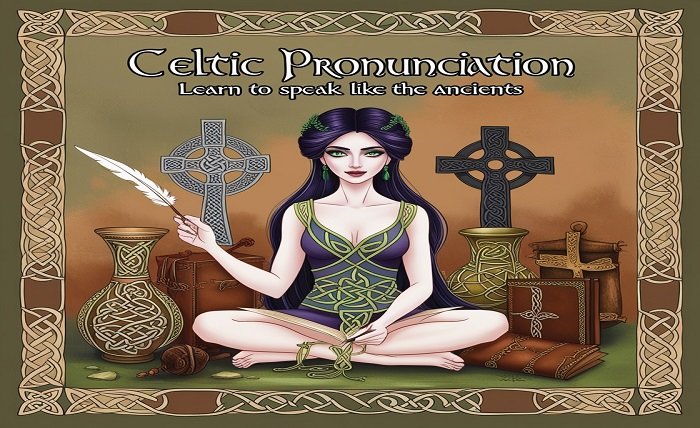Overview
For centuries, linguists, historians, and language aficionados have been captivated by the celtic pronunciation due to their distinct sound and rich historical background. Because each of the Celtic languages—Welsh, Breton, Irish Gaelic, Scottish Gaelic, and others—has its own unique phonetic conventions, pronouncing words in these languages might seem very difficult. This blog post explores the subtleties of pronouncing words in the celtic pronunciation, emphasizing important points and illuminating the exquisite intricacy of these historic tongues.
The Celtic Languages’ Historical Background
The Celtic languages have been spoken for thousands of years and are members of the Indo-European language family. Gaining an appreciation for their distinctive phonetic features requires an understanding of their origins. Goidic (Irish, Scottish Gaelic and Manx) and Brython (Gaelic, Breton and Cornish) are the two mother Celtic languages.
The Significance of the Phonetic Alphabet
Understanding the International Phonetic Alphabet (IPA), which offers a uniform representation of sounds across languages, is essential to learning celtic pronunciation. The IPA provides a clear guide to the unique sounds in Celtic words, which makes it very useful for learning how to pronounce them.
Gaelic Vowel Sounds in Languages
The celtic pronunciation words heavily relies on vowel sounds. Vowel sounds are unique to each Celtic language and can alter word meanings. In Irish Gaelic, for instance, the vowels “a,” “e,” “i,” “o,” and “u” can have various sounds depending on where they are in relation to the surrounding consonants.
Mutations of Consonants
Consonant mutations are among the most difficult parts of celtic pronunciation. These happen when a word’s first consonant is altered because of contextual or grammatical reasons. Comprehending these modifications is crucial for precise pronunciation and understanding. For example, depending on its usage and place, the Welsh letter “c” can change to “g,” “ch,” or “ng.”
Stress and Accents’ Function
In celtic pronunciation, accents and stress patterns are crucial. The initial syllable of a word is usually stressed in many Celtic languages. There are some exceptions, though, and knowing these patterns will help you pronounce words more accurately. For example, in Welsh the stress usually falls on the last syllable, while in Irish Gaelic the stress usually falls on the first syllable.
Regional Disparities in Speech
Regional varieties of the celtic pronunciation exist, and each has its own distinctive phonemes for pronunciation. For instance, the Munster, Connacht, and Ulster dialects of Irish Gaelic can pronounce some things very differently. By investigating these regional differences, we can gain a better grasp of the diversity and richness of Celtic speech.
Typical Pronunciation Errors
celtic pronunciation certain consonant clusters and vowel combinations can be difficult for learners of Celtic languages. For example, the sounds’mh’ and ‘bh’ in Scottish Gaelic can be difficult to say; they are frequently mispronounced as ‘v’ or ‘w’. The secret to better pronunciation is to recognize and practice these difficult sounds.
Resources & Guides for Pronunciation
There are several tools available to assist with celtic pronunciation, such as audio guides, language classes, and online dictionaries. Making use of these resources might offer helpful direction and support. Native speaker pronunciation examples are available on websites like as Forvo and Omniglot, which can be very beneficial.
The Impact of Different Linguistics
Over the years, exchanges with different languages have altered the celtic pronunciation languages. For example, many French words were brought into Irish Gaelic during the Norman conquest, which had an impact on pronunciation. Gaining an understanding of these effects can help with pronunciation mastery and provide context.
In summary
Although it takes commitment and repetition to become proficient in pronouncing Celtic languages, the benefits are great. One can appreciate the intricacy and beauty of celtic pronunciation by becoming well-versed in the language’s peculiar phonetic principles. Accepting the process of discovery is essential when studying any Celtic language, be it Welsh, Scottish Gaelic, Irish Gaelic, or another.
FAQ
What are the most difficult Celtic words to pronounce correctly?
Vowel sounds, consonant mutations, and geographical variances are common problems. These obstacles can be addressed with practice and exposure to native speakers.
How can I pronounce Celtic words more accurately?
To monitor your development, use phonetic transcriptions, practice frequently, listen to native speakers, and think about recording yourself.
Are the pronunciations of the Celtic languages spoken differently from one another?
Indeed, regional dialects and distinctive pronunciation guidelines distinguish each Celtic language and add to the variety of sounds.
What tools are available to learn how to pronounce things in Celtic?
Pronunciation assistance can be found on websites like Forvo and Omniglot, via audio guides, online dictionaries, and language classes.
How did other languages influence the Celtic language?
Foreign words and pronunciation patterns have been brought into Celtic languages through historical exchanges, such as the Norman conquest, which has enhanced their phonetic environment. Find out more information: lebossduturf

